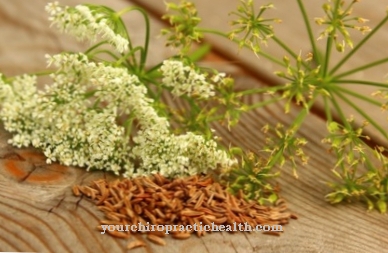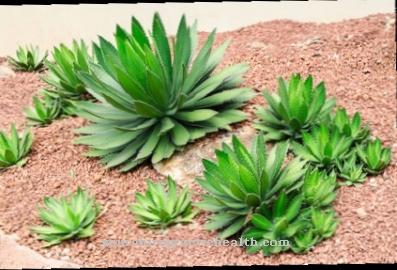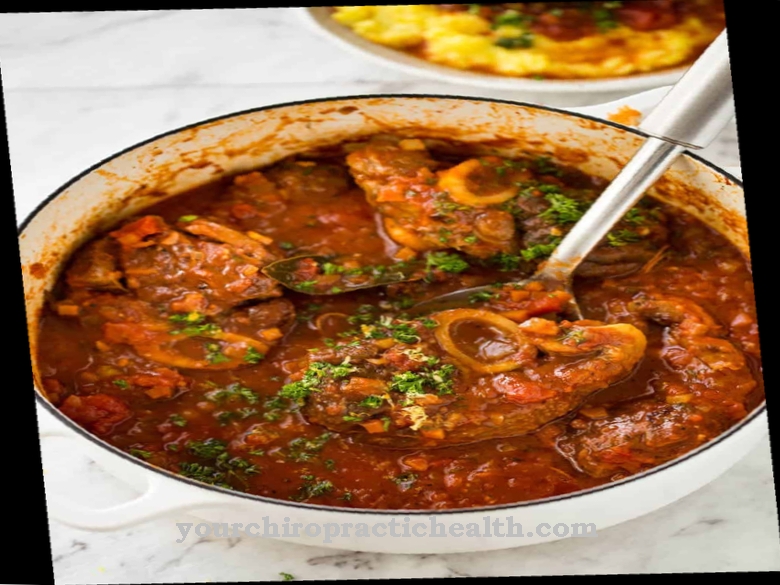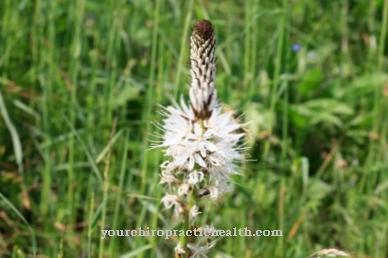It is not always necessary to use chemical medication for all complaints. The effect of certain natural substances has now been scientifically proven. These also include Cloves. The plant has a wide range of properties.
Occurrence & cultivation of carnations

Cloves are used more often, especially in winter, for example as an addition to red cabbage or gingerbread. The plant is also suitable for medicinal purposes. Carnations are not grown in Germany due to climatic conditions. Instead, they arrive in Europe by sea or air. Originally, carnations grew increasingly in Asia, Africa and the Mediterranean region.
There are several types of carnation. The clove is particularly important for medicinal purposes. This is part of the myrtle family and grows mainly in the Philippines. However, the plant has already been relocated to other countries for export. The carnation itself is the flower bud of the clove tree. This reaches a height of up to 20 meters. For optimal use of the carnations, the flower buds are harvested before they bloom. Then the flowers have to be dried, which changes their color from pink to brown.
The cloves have a high number of essential oils. The oil eugenol takes up the largest part. It is precisely this oil that is responsible for the positive effects in most uses. Carnations are valued by doctors and patients in different areas. Not only can cloves be used pure, they can also be found processed in numerous medications.
Application & effect
The flower buds of the clove tree consist of around 25 percent essential oils. Eugenol is 90 percent represented here. The other substances are acetyleugenol and ß-caryophyllene. Eugenol is particularly valued for inhibiting the growth of viruses, bacteria and fungi. It is thus possible, for example, to take limited action against infections.
In addition, the oil has analgesic properties, has a local anesthetic effect and can trigger an anti-inflammatory effect. Due to its properties, cloves in the form of clove oil are particularly often used for dental problems. It not only helps against pain, such as caused by an inflamed tooth, at the same time it actively combats the pathogens and thus supports the healing process. The properties also have a positive effect on inflammation in the mouth or throat, as can be the case with colds. To do this, clove oil is poured into a glass of water and gargled with the liquid. This is especially true for inflammation of the gums or in the region of the throat.
In the case of toothache, the oil should first be put on a cotton ball and rubbed into the affected tooth. In addition, the active ingredients of clove are often already present in toothpastes. Here they also neutralize an unpleasant bad breath. Further research has shown that the cloves have the potential to fight herpes and diabetes. As part of diabetes treatment, the substances should intervene in the liver's metabolism and regulate it for the benefit of the patient's health.
The uses of cloves are varied. They can also help with bloating or gas. Certain ingredients have an antispasmodic and digestive effect. Carnations can be used in different forms. In addition to oils, it is also possible to incorporate the flower buds unprocessed into meals or to swallow capsules that contain the active ingredients. Cloves are also used in some teas.
Importance for health, treatment & prevention
Cloves can therefore be used for different complaints. In particular, they help to alleviate existing diseases. These are inflammations, but also infections, which have been triggered by various pathogens. Its use is particularly widespread in the dental field. The cloves usually have no side effects. In some cases, patients are hypersensitive to the eugenol. When used in smaller amounts, however, no symptoms are to be expected in most cases.
In addition, clove oil should only be used in diluted form, as otherwise it is able to irritate the mucous membranes. Before using pure clove oil, the dosage should be determined by consulting a doctor. Self-medication is not recommended. Cloves should not be used in the event of intolerance or hypersensitivity. While the cloves are usually not used until the symptoms have already appeared, they have a powerful effect.
Cloves can therefore often be seen as an effective alternative to chemical drugs. People who are prone to bacterial infections or who have more frequent fungal infections (for example in the form of vaginal thrush caused by the Candida yeast) can also use cloves as a preventive agent. The active ingredients manage to curb the growth of the pathogen. Under certain circumstances, the severity of the disease can thus be reduced or the outbreak greatly mitigated.
The same applies to people who suffer from digestive problems and stomach pains. The cloves are particularly effective in relieving constipation, flatulence and vomiting. At the same time, they stimulate the appetite and stomach. Cloves can therefore not only act against diseases and complaints, but at the same time maintain the quality of life in the case of minor disturbances. Despite its natural ingredients, cloves should find acceptance as a drug.
























.jpg)



